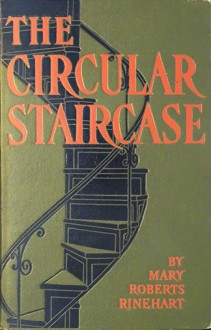
MurderByDeath
Wow, this was so not the book I was expecting!
Middle-aged spinster Rachel Innes leases a country house for the summer. Her plans for a restful vacation are soon interrupted by niece and nephew and, unaware that the old house hides a sinister secret, they unwittingly set off a chain of mysterious and murderous events.
I was expecting something... I don't know, a bit more staid, maybe? Something with a more linear plot; at just a little over 170 pages it didn't seem there was much room for complex plotting.
Boy was I wrong! Rachel is hysterical: biting wit, sarcastic and pragmatic. Her relationship with her maid, Liddy, provides comic relief throughout the book. And the plotting was labyrinthine! The country house is at the centre of the mystery, and there are so many events, so many threads, so many bodies! I never had half an idea what was really going on and I loathed putting down the book.
The story is told in first person past: Rachel is writing an account of the event long after its resolution and frequently speaks directly to the reader. The book is billed as a romantic suspense and the suspense is there, but all romance happens at a remove. I would not, by today's terms, call this at all romantic. It could be argued to be gothic, as the book comes complete with large house, strange noises in the night, candles down darkened hallways and sightings of ghosts, but there's too much humour; I don't think your supposed to laugh out loud while reading a gothic.
The writing is brilliant; I don't think I had one inkling of what was going to happen before it happened. There were at least two plot twists that totally surprised me. Rachel might be the prototype TSTL female, but it didn't bother me here - although at the end I did roll my eyes once.
There was only one thing stopping me from calling this the perfect mystery book. It was first published in 1908 and even in this context it is so blatantly racist it made me gasp out loud. Rachel casually makes the bluntest racial comments, but shows respect and detached affection for the black butler, Thomas Johnson, and the author's intent to make him quietly heroic feels unquestionable (although she does adhere to some embarrassing stereotypes) - but this makes it all the more painful to read. Those three or four sentences in the book tarnished what would have been, for me, a perfect read.
Rinehart was a master of mystery writing and I am, in spite of the distasteful moments, definitely going to check out more of her work.
